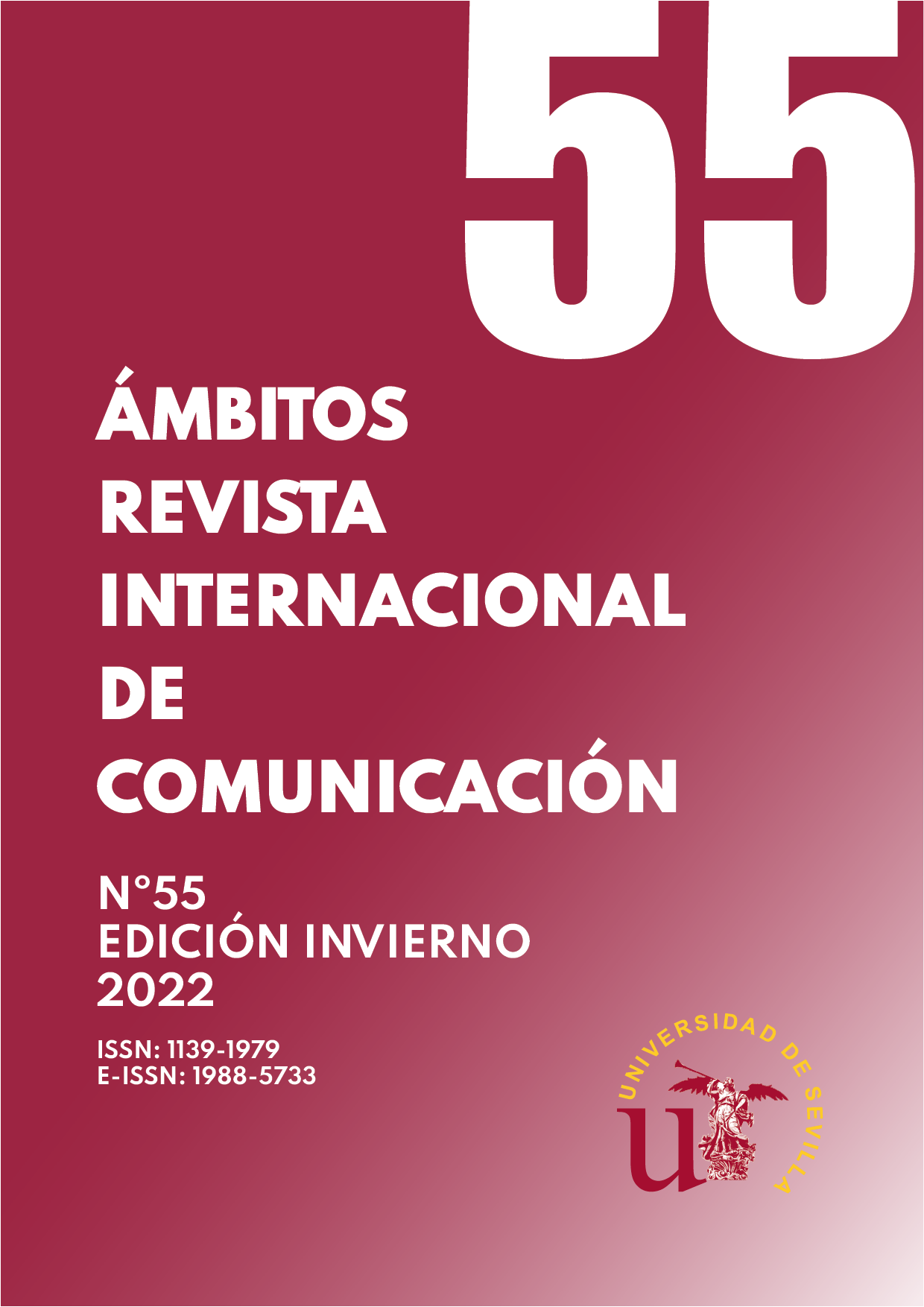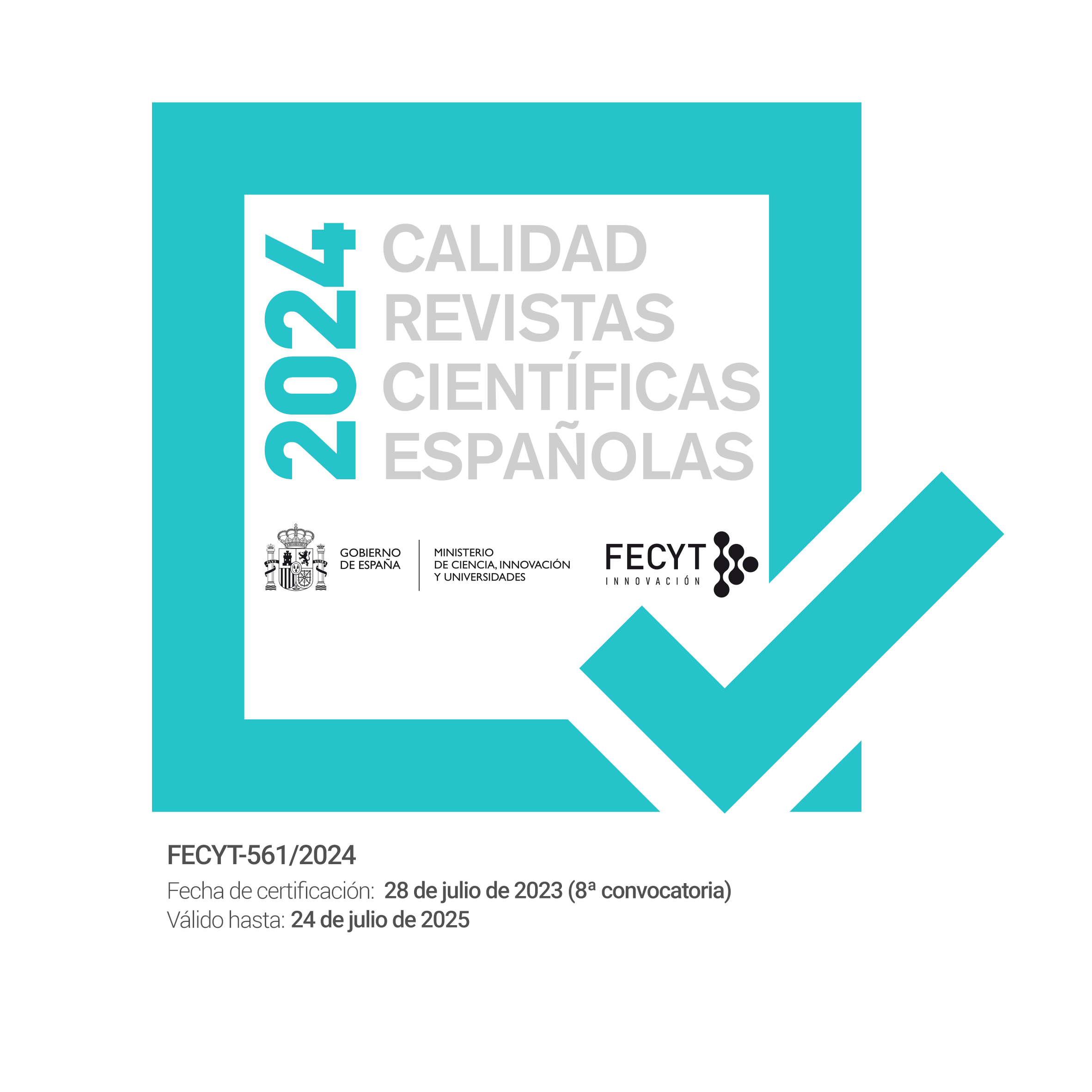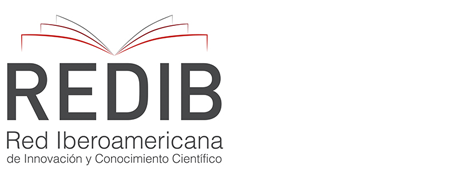Privacy, a challenge for journalists and communicators. Analysis of privacy in university communication studies of Europe and the United States
DOI:
https://doi.org/10.12795/Ambitos.2022.i55.08Keywords:
privacy, journalism, university, technology, deontologyAbstract
The right to privacy of citizens and their concern for the protection of their data has been accentuated with the consolidation and massive use of the Internet, where millions of personal references of both direct users and sporadic surfers are increasingly exposed.
But if there is a profession that is subjected to the difficult balance between respect for privacy and the rigorousness of a work that is of public interest, this is journalism and its professionals, who have previously been trained in universities around the world.
This article aims to show in what contexts and how the issue of privacy is addressed in journalism and communication studies. To this end, we present the results of a quantitative and qualitative study that analyzes 865 subjects of the 25 degrees that make up the 13 best universities in communication and media in Europe and the United States, according to the international indexes "QS World University Ranking by Subject".
The conclusions point out that, despite the
interest generated by the public, universities relegate teaching related to "privacy" and data protection to a clearly minority position in their curricula. The necessary changes to adapt to the new reality must be assumed by future professionals from their learning centers, because this is the only way to achieve the true meaning of their work: that of committing themselves ethically to society.
Downloads
Metrics
References
Acosta, M.; Costales, Z.; Rosales, B. (2016): Formación por competencias profesionales en la carrera de Periodismo. Rev. Cubana Edu. Superior, vol.35, nº 1, pp. 75-84.
Berman, J.; Mulligan, D. (1999). Privacy in the Digital Age: Work in Progress, Nova Law Review, vol. 23, nº. 2.
Cervi, L. (2017) Citizen Journalism and User Generated Content in Mainstream Media. new dialogic form of communication, user-engagement technique or free labor exploitation? Revista de Comunicaçao Dialogica, (1), 120–141. https://doi.org/10.12957/rcd.2019.41871
Cervi, L.; Pérez Tornero, J.M.; Tejedor, S. (2020). The Challenge of Teaching Mobile Journalism through MOOCs: A Case Study. Sustainability (12), 5307. https://doi.org/10.3390/su12135307
Cervi, L. (2020). Exclusionary Populism and Islamophobia: A Comparative Analysis of Italy and Spain. Religions, 11, 516.
Culver, S. H.; Grizzle, A. (2017). Survey on Privacy in Media and Information Literacy with youth perspectives. USA, Temple University: UNESCO. http://unesdoc.unesco.org/images/0025/002589/258993e.pdf
Díaz del Campo-Lozano, J. (2013). El lugar de la Ética en la formación del periodista. Un estudio de la situación en la Unión Europea. Cuadernos.Info, 33, pp. 113-120.
Digital 2021. Global Overview Report (2021): https://wearesocial.com/digital-2021
Gilmor, D. (2004). We the Media. Sebastopol. California: O’Reilly.
Lévy, L. (2007). Cibercultura: la cultura de la sociedad digital. Barcelona: Anthropos.
López García, X. (2010). La formación de los periodistas en el siglo XXI en Brasil, España, Portugal y Puerto Rico. Revista Latina de Comunicación Social, 65. La Laguna (Tenerife): Universidad de La Laguna, pp 231- 243.
López-García, X.; Rodríguez-Vázquez, A.; Pereira-Fariña, X. (2017). Technological Skills and New Professional Profiles: Present Challenges for Journalism. Comunicar, 53, pp. 81-90.
Mellado, C.; Simon, J.; Barría, S.; Enríquez, J. (2007). Investigación de perfiles profesionales en periodismo y comunicación para una actualización curricular permanente. Zer, 23, 2007, p.139-164.
Mellado, C. (2010). La voz de la academia: Reflexiones sobre periodismo y comunicación. Signo y Pensamiento, vol. XXIX, núm. 56, pp. 274-287.
Mendel, T.; Puddephatt, A.; Wagner, B.; Hawtin, D.; Torres, N. (2012). Global survey on internet privacy and freedom of expression. Paris: Unesco. http://unesdoc.unesco.org/images/0021/002182/218273e.pdf
NiemanLab (2017): http://www.niemanlab.org/collection/predictions-2017/ (01-08-2017)
Pérez Tornero, J.M. (2016): Promoting Digital Literacy. Informe Final EAC/76/03. Comprender la alfabetización digital. Barcelona: Gabinete de Comunicación y Educación, Universitat Autònoma de Barcelona. http://www.gabinetecomunicacionyeducacion.com/sites/default/files/field/adjuntos/comprender_dl.pdf (01-08-2017)
Pew Research Center (2016). “The state of privacy in post-Snowden America”. http://www.pewresearch.org/fact-tank/2016/09/21/the-state-of-privacy-in-america/
Quan-Haase, A; Young, A. L. (2010). Uses and gratifications of social media: A comparison of Facebook and instant messaging. Bulletin of Science, Technology & Society, 30(5), pp. 350-361.
Reuters Institute (2017): Journalism, Media and Technology Trends and Predictions 2017. http://reutersinstitute.politics.ox.ac.uk/our-research/journalism-media-and-technology-trends-and-predictions-2017 (01-08-2017)
Ruano, l. E.; Torres, A. E. (2016). Comunicación e interacción por el uso de dispositivos tecnológicos y redes sociales virtuales en estudiantes universitarios. Revista Ibérica de Sistemas e Tecnologias de Información, 19, pp. 15-31
Salaverría, R. (2016). Redefinir al comunicador. El profesional de la información, v. 25, n. 2, pp. 163-167.
Scolari, C.A. (2013). Media Evolution. Emergence, Dominance, Survival and Extinction in the Media Ecology. International Journal of Communication 7, pp. 1418–1441.
Singh, J.; Grizzle, A.; Joan Yee, S. & Hope Culver, S. (Eds.) (2015). Media and Information Literacy for the Sustainable Development Goals. MILID Yearbook 2015. Gothenburg: The International Clearinghouse on Children, Youth and Media; Nordicom. http://www.nordicom.gu.se/sites/default/files/publikationer-hela-pdf/milid_yearbook_2015.pdf
Tramullas. J. (2016). Hannibal ad-portas o los futuros perfiles profesionales de la información. El profesional de la información, v. 25, n. 2, pp. 157-162.
Turow, J.; Hennessy, M. & Draper, N. (2018). Persistent Misperceptions: Americans’ Misplaced Confidence in Privacy Policies, 2003–2015. Journal of Broadcasting & Electronic Media, 62:3, 461-478.
Unesco (2007): Colección de la UNESCO sobre los estudios de periodismo Plan modelo de estudios de periodismo. 2007. París.
Vasallo, M.; Fuentes, R. (comps.) (2000). Comunicación. Campo y objeto de estudio. Perspectivas reflexivas latinoamericanas. México D. F.: Iteso, Universidad Autónoma de Aguascalientes, Universidad de Colima, Universidad de Guadalajara.
Wenger, D., Owens, L., Thompson, P. (2014). Help Wanted: Mobile Journalism Skills Required b Top U.S. News Companies. Electronic News, vol 8(2), 138-149.
Westlund, O. (2013). Mobile News: A review and model of journalism in an age of mobile media. Digital Journalism, Vol. 1, No. 1, 2013, 6–26.
Downloads
Published
How to Cite
Issue
Section
License
Copyright (c) 2022 Laura Cervi, Carles Marín-Lladó

This work is licensed under a Creative Commons Attribution-NonCommercial-ShareAlike 4.0 International License.
Ámbitos. Revista Internacional de Comunicación is an open access journal, which means that all content is freely available at no charge to the user or their institution. Users may read, download, copy, distribute, distribute, print, search or link to the full text of articles, or use them for any other lawful purpose, without seeking prior permission from the publisher or author. This definition of open access is in accordance with the Budapest Open Access Initiative (BOAI).

Unless otherwise noted, all content in the electronic edition is distributed under a "Creative Commons Attribution-NonCommercial-ShareAlike 4.0 International License". You can consult the informative version and legal text of the licence here. This should be expressly stated in this way where necessary.
In case of acceptance of the manuscript, the authors cede the rights of the work for its publication to Ámbitos. Revista Internacional de Comunicación under the Attribution-NonCommercial-ShareAlike 4.0 International license contract (CC BY-NC-SA 4.0). The authors retain copyright and third parties are authorised to copy, distribute and make use of the work, provided they comply with the terms and conditions set out in the licence
- Cite the authorship and the original source of publication (journal, publisher and URL of the work).
- Do not use them for commercial purposes.
- If you remix, transform or create from the material, you must release your contributions under the same license as the original.
More information can be found at https://creativecommons.org/licenses/by-nc-sa/4.0/deed.es
- Abstract 965
- PDF (Español (España)) 151


















